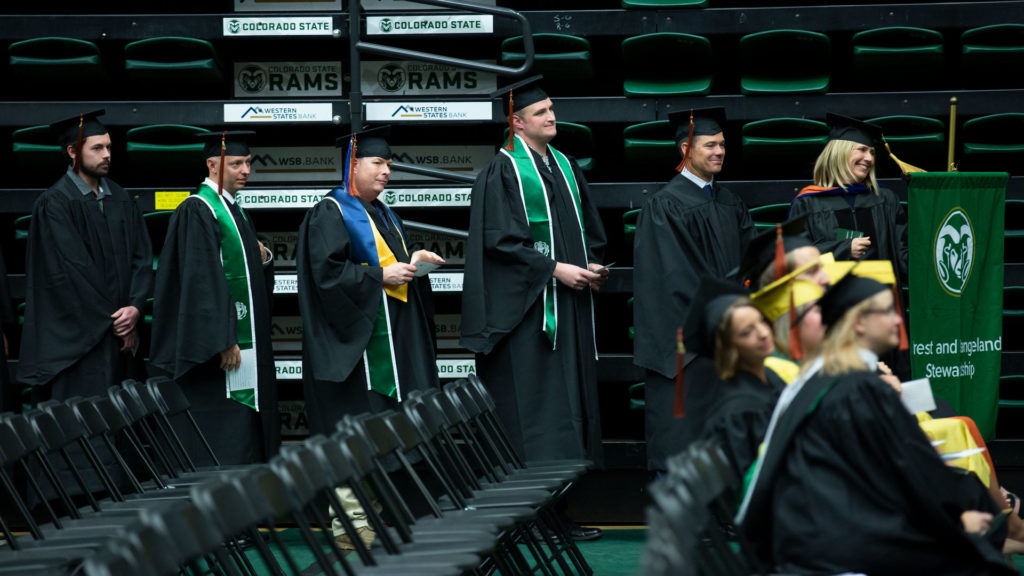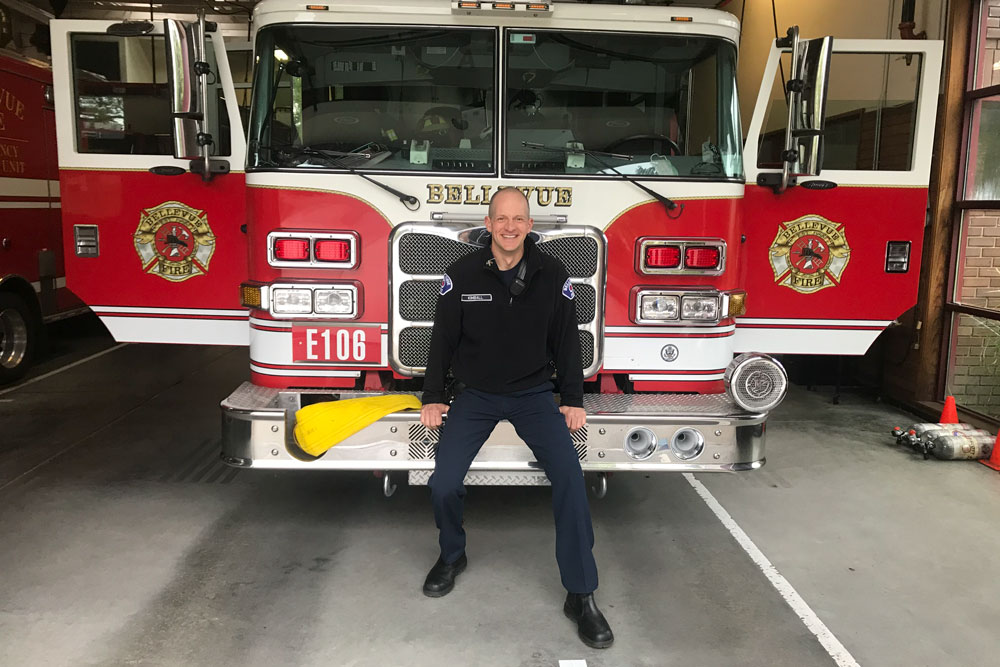
As Colorado State University researchers take offensive action against the COVID-19 virus on the pathogen’s microscopic turf, a different group of CSU professionals are among the front-line defenders in the pandemic response.
Over 50 current CSU Online student-professionals in the Fire and Emergency Services Administration program are currently providing daily care and comfort to people in more than 40 different cities across the nation. As certified emergency medical technicians, paramedics, emergency managers, firefighters and officers, and hazardous materials responders, these essential workers are among the first to treat patients exhibiting coronavirus symptoms.
“Right now, our students are serving more medical calls and, for the departments where emergency medical services is a part of the fire department, more medical transports,” FESA Program Director Larry Grosse said.
In the more than 20 years since the FESA program began, it has trained members of fire departments to respond to ever more non-fire related situations such as accidents, medical conditions, terror-related incidents, and natural disasters. They are rising to the new challenge of caring for patients infected with a global virus. CSU student-professionals are part of this collective effort to reinforce COVID-19 containment during every emergency callout.
Safe working conditions for staff and patients
Charlie Kimball, who will be graduating from the FESA program in May, said he knew something was different when he began seeing peers and colleagues regularly on the front page of the New York Times. He is a lieutenant with the Bellevue Fire Department, just south of the area in Seattle first impacted by the coronavirus in early March.
His department was uniquely situated to respond quickly to the new needs introduced into its daily workflow by the virus. Kimball’s station is also the regional hub for hazardous materials response, already equipped with personal protective equipment (PPE).
“We quickly did inventories of what equipment we needed, how fast we would run out, how to order more materials and how to decontaminate after calls,” the nine-year station veteran said. “It was impressive to watch our crews adapt to unique and challenging circumstances.”

The station has doubled and tripled its efforts to reduce the risk of contamination from equipment, surfaces and employees. Upon checking into their 24-hour shifts, Kimball and his colleagues receive a temperature scan, are questioned about any symptoms, and then decontaminate all high-traffic areas of use and touch. This level of detail includes sanitizing ear protection, door handles and even coffee pots in the station.
When the station receives a coronavirus call these days, Kimball said more is at stake. Most people with symptoms are self-treating at home, so calls tend to come from people in whom symptoms have worsened over time.
Kimball can personally relate to all the uncertainty and emotions patients and station members are experiencing. When he exhibited minor symptoms of COVID-19, he self-quarantined in a room in his house and was separated from his family for four days before his test returned negative.
“I know how important it is to take the steps needed to protect myself, my colleagues and our patients along with all their families,” Kimball said.
Each shift has become a series of short-term goals that are leading toward the long-term goal of pandemic control. Kimball said the approach to completing his FESA education through CSU Online mirrors his station’s efforts in the pandemic.
“I wanted to send a positive message to my kids about the importance of education, but also having long endurance-based goals that you tick away at daily until, in the end, you’re successful,” he said.
Taking extra precautions beginning to end
Mac Malone first took the EMT test a handful of years ago.
“I first worked on an ambulance and then it kind of snowballed in a short amount of time from there,” said Malone, who plans to graduate with his FESA degree in December.
The pandemic has accelerated that snowball in the last few months.
The 25-year old Virginia native moved to Denver a year ago to work as a firefighter and paramedic for the South Metro Fire Rescue Authority. Colorado’s capital hasn’t seen the large number of coronavirus cases other densely populated cities have experienced, and Malone partly attributes this to the fact that responders like him are taking extra precautions from the beginning to the end of each shift.
He said his station’s call volume has decreased but more thought and preparation are now required when responding and conducting patient care. When he and his colleagues report for their 48-hour shifts, they receive briefings on the latest information from the state as well as a fully formed plan for what they should be doing, what they should watch out for, and any areas where the virus is trending.
“Our chiefs are really mindful of us and never forget about us,” Malone said. “We’re out in the field the most and they provide the information and equipment we need to keep us and our patients safe.”
On calls, they send only one or two responders into the residence to assess the situation and begin care. If the patient is exhibiting coronavirus symptoms, they offer the best care while employing minimal contact. Malone said the FESA program has helped him prepare for these new protocols.
“It’s important to know these things can happen and that we have the appropriate steps in place to respond effectively,” he said. “I’ve learned how important communication is for preparedness and to ultimately find the best way to respond in any given situation.”
Malone said he is also looking forward to a time when things can return to the semblance of normal.
“I think things are changing, and what we are doing is working,” he stressed. “We have to continue being mindful about how we live when we return to that normal. All our sacrifices now are for the good of everyone.”
While the situation is stressful and unique for first responders on every front line, Malone believes there is one thing that won’t change among his CSU peers and colleagues scattered across the nation.
“We’re there to help and that’s what we’re going to do,” he said. “We’re not going to stop.”
The Fire and Emergency Services Administration program is part of the Forest and Rangeland Stewardship Department of the Warner College of Natural Resources.